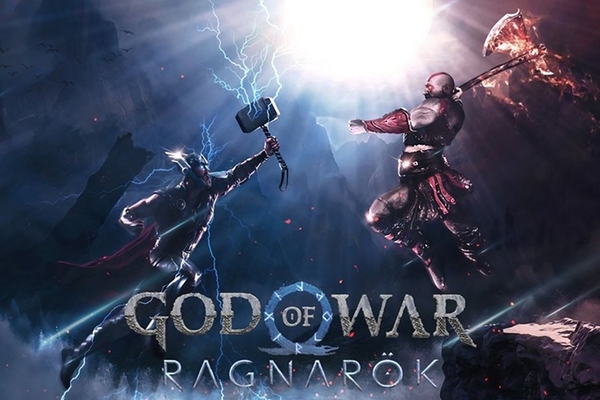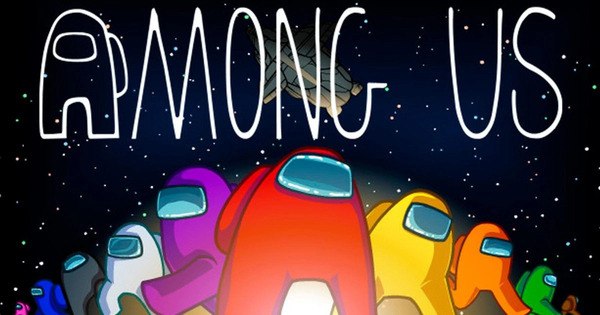Advertisement
Popular Now
Grand Theft Auto V (GTA V) is not just a game; it is a cultural phenomenon that has sparked conversations about morality, crime, and the human condition. Through its richly crafted narrative and multi-dimensional characters, GTA V explores the ethical dilemmas associated with criminal behavior, forcing players to confront their own moral beliefs. This article will delve into the intricate ways in which the game presents the consequences of crime, the nature of choice, and the complexity of morality within its immersive world.
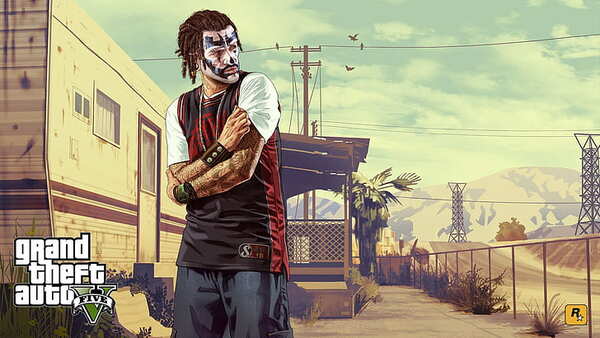 GTA V is set in Los Santos, a sprawling metropolis that serves as a microcosm of American society. The city is not merely a backdrop; it is a living entity that reflects the socio-economic divides and moral complexities of contemporary urban life.
GTA V is set in Los Santos, a sprawling metropolis that serves as a microcosm of American society. The city is not merely a backdrop; it is a living entity that reflects the socio-economic divides and moral complexities of contemporary urban life.
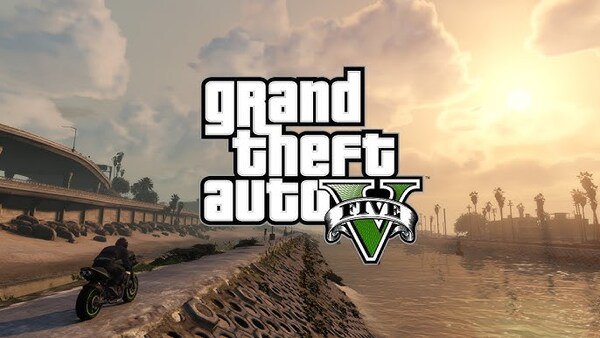 The attention to detail in Los Santos creates an immersive experience that encourages players to engage deeply with its inhabitants and the moral dilemmas they face.
The attention to detail in Los Santos creates an immersive experience that encourages players to engage deeply with its inhabitants and the moral dilemmas they face.
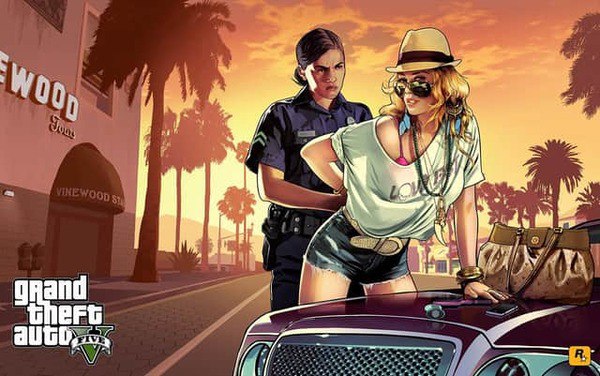 Michael represents the paradox of the American Dream. Despite his wealth and success, he grapples with deep dissatisfaction and moral conflict.
Michael represents the paradox of the American Dream. Despite his wealth and success, he grapples with deep dissatisfaction and moral conflict.
 Franklin’s ascent from petty crime to major heists illustrates the allure of criminality as a means of achieving success.
Franklin’s ascent from petty crime to major heists illustrates the allure of criminality as a means of achieving success.
 Heists form a central gameplay mechanic in GTA V, serving as a framework for exploring moral choices within the context of crime.
Heists form a central gameplay mechanic in GTA V, serving as a framework for exploring moral choices within the context of crime.
The Setting: Los Santos as a Character
 GTA V is set in Los Santos, a sprawling metropolis that serves as a microcosm of American society. The city is not merely a backdrop; it is a living entity that reflects the socio-economic divides and moral complexities of contemporary urban life.
GTA V is set in Los Santos, a sprawling metropolis that serves as a microcosm of American society. The city is not merely a backdrop; it is a living entity that reflects the socio-economic divides and moral complexities of contemporary urban life.
Urban Decay and Wealth Disparity
Los Santos vividly portrays the stark contrasts between wealth and poverty, ambition and despair. This socio-economic landscape shapes the characters’ motivations and actions.- Wealth and Crime: The affluent neighborhoods of Vinewood and Pacific Bluffs stand in stark contrast to the struggles of South Los Santos. The game's setting raises questions about the relationship between socioeconomic status and criminal behavior. Is crime an escape from poverty, or a symptom of systemic inequality?
- Cultural Diversity: The diverse populace of Los Santos allows the game to explore a variety of perspectives on crime and morality. Each character’s background influences their ethical choices, demonstrating how environment shapes moral beliefs.
The Immersive World of Los Santos
 The attention to detail in Los Santos creates an immersive experience that encourages players to engage deeply with its inhabitants and the moral dilemmas they face.
The attention to detail in Los Santos creates an immersive experience that encourages players to engage deeply with its inhabitants and the moral dilemmas they face.
- Interactive Environment: Players are invited to explore a world filled with dynamic interactions and side stories that reflect the complexities of urban life. These interactions serve to humanize the consequences of crime, prompting players to consider the implications of their actions.
- Realistic Consequences: The game’s realistic portrayal of crime and its impact on the community enhances the moral weight of player choices. The repercussions of crime are not confined to the protagonists but ripple through the fabric of society.
The Protagonists: Navigating Moral Ambiguity
The three main characters—Michael, Franklin, and Trevor—each embody different aspects of morality and the complexities of crime. Their narratives intersect in ways that challenge players' ethical perspectives.Michael De Santa: The Disillusioned Dreamer
 Michael represents the paradox of the American Dream. Despite his wealth and success, he grapples with deep dissatisfaction and moral conflict.
Michael represents the paradox of the American Dream. Despite his wealth and success, he grapples with deep dissatisfaction and moral conflict.
The Cost of Success
Michael’s character highlights the emptiness that can accompany material wealth.- Family Strain: His relationships with his wife and children are fraught with tension, revealing the personal costs of his criminal past. Michael's attempts to achieve a sense of normalcy often lead him back to crime, raising questions about the true nature of success.
- Redemption Arc: Michael's desire for redemption creates a narrative tension that challenges players to consider whether true change is possible. His struggles reveal that the past is not easily escaped, emphasizing the lasting consequences of one’s actions.
Franklin Clinton: The Reluctant Criminal
Franklin serves as a representation of ambition in a world rife with obstacles. His journey reflects the moral complexities faced by those striving for a better life.The Temptation of Crime
 Franklin’s ascent from petty crime to major heists illustrates the allure of criminality as a means of achieving success.
Franklin’s ascent from petty crime to major heists illustrates the allure of criminality as a means of achieving success.
- Moral Dilemmas: Franklin finds himself torn between the conflicting influences of Michael and Trevor, each representing different moral paths. This struggle highlights the internal conflict many face when confronted with ethical choices in their pursuit of ambition.
- Socioeconomic Commentary: Franklin’s character challenges players to reflect on the systemic issues that drive individuals toward crime. His story prompts a discussion about whether crime can be justified as a means of survival.
Trevor Philips: The Embodiment of Chaos
Trevor represents the darker side of humanity, embodying violence and moral ambiguity. His character forces players to confront uncomfortable truths about crime.The Nature of Violence
Trevor's unpredictable behavior raises questions about the roots of violence and the moral implications of living without constraints.- Trauma and Instability: Trevor’s backstory reveals a history of trauma that informs his violent tendencies. This complexity invites players to empathize with a character who embodies chaos, challenging them to consider the psychological factors that shape moral behavior.
- Freedom and Consequence: Trevor’s anarchistic lifestyle forces players to grapple with the implications of unrestrained freedom. His actions often lead to catastrophic consequences, illustrating the moral costs of living without ethical boundaries.
The Heists: Ethical Decision-Making
 Heists form a central gameplay mechanic in GTA V, serving as a framework for exploring moral choices within the context of crime.
Heists form a central gameplay mechanic in GTA V, serving as a framework for exploring moral choices within the context of crime.
Planning and Execution
The heists in GTA V are not just action sequences; they are moral battlegrounds where players must make critical ethical decisions.- Approach Choices: Players can choose between stealthy or aggressive tactics, each with its own set of consequences. This decision-making process emphasizes the ethical implications of players’ actions, as the choice of approach affects not only the heist’s outcome but also the morality of their methods.
- Crew Selection: Choosing crew members introduces additional layers of complexity. Players must weigh factors like loyalty and trust, further enriching the moral landscape of the game.
Consequences of Actions
The outcomes of heists reflect the moral weight of players’ choices, underscoring the interconnectedness of actions and their repercussions.- Impact on Relationships: Success or failure in heists can significantly alter character dynamics, highlighting the moral implications of trust and betrayal within the team.
- Community Impact: The game’s narrative emphasizes that the effects of crime extend beyond the protagonists, impacting innocent bystanders and entire neighborhoods. This reality encourages players to consider the broader societal consequences of their in-game actions.
Law Enforcement: A Critical Lens
GTA V’s portrayal of law enforcement serves as both a critique and a reflection of societal attitudes toward authority and justice.Satirical Commentary
The game employs humor and satire to highlight the absurdities of law enforcement, prompting players to question the legitimacy of authority.- Corruption and Ineptitude: The exaggerated portrayal of police officers often depicts them as incompetent or corrupt, serving as a critique of real-world issues within law enforcement. This representation challenges players to reflect on the ethics of authority and the complexities of justice.
- Player Agency vs. State Power: Players are given the freedom to resist or engage with law enforcement, leading to moral reckoning as they navigate the consequences of their actions within a flawed system.
The Consequences of Crime
The narrative emphasizes the broader implications of criminal behavior on society, urging players to consider the impact of their actions.- Community Effects: The repercussions of crime extend beyond the protagonists, affecting innocent bystanders and neighborhoods. This reality underscores the moral responsibility players hold in shaping the game’s world.
- Reflection on Justice: The interplay between crime and law enforcement invites players to reflect on their moral beliefs about justice and authority, challenging them to consider the ethics of their choices.
Humor and Satire: Balancing Serious Themes
GTA V is renowned for its dark humor, which often serves to mitigate the seriousness of its moral themes while provoking deeper reflection.Comedy as a Coping Mechanism
The game’s humor provides a lens through which players can engage with serious issues, allowing for a more nuanced exploration of morality.- Absurd Situations: The comedic elements often arise from absurd scenarios that create levity amidst the chaos of crime. This juxtaposition allows players to explore moral themes without becoming overwhelmed by their gravity.
- Stereotypes and Caricatures: The exaggerated characters and situations serve as a critique of societal norms, prompting players to laugh while also engaging with deeper moral questions.
Ethical Implications of Humor
While humor can disarm serious topics, it also raises questions about moral engagement and desensitization.- Desensitization to Violence: The comedic portrayal of violence may lead players to become desensitized to its consequences, complicating their understanding of morality.
- Critical Reflection: The humor invites players to analyze societal norms, urging them to question their values and beliefs about morality, justice, and crime.
The Role of Choice: Agency and Morality
A central theme in GTA V is the significance of player choices and their impact on the narrative and character relationships.Narrative Branching
GTA V features multiple endings and branching narratives that respond to players’ decisions, reinforcing the moral weight of their choices.- Diverse Outcomes: The varied endings serve as reflections of players’ moral decisions, illustrating how each choice leads to different consequences and character fates.
- Character Development: The relationships between characters evolve based on players’ choices, showcasing the interconnectedness of morality and social dynamics.
Interpersonal Relationships
The moral choices made during gameplay significantly affect character dynamics, underscoring the importance of empathy and understanding.- Trust and Betrayal: Choices made can lead to trust or betrayal, impacting character arcs and player experiences. This reality emphasizes the moral complexities of interpersonal relationships in a criminal context.
- Emotional Fallout: The emotional consequences of decisions underscore that morality extends beyond individual actions to their effects on others, highlighting the importance of empathy in understanding morality.
Broader Implications of Morality in GTA V
GTA V’s exploration of morality transcends its narrative, prompting players to examine their own ethical frameworks in relation to real-world issues.Real-World Ethics
As players engage with the moral dilemmas presented in the game, they are encouraged to reflect on their beliefs about crime, justice, and morality.- Comparative Morality: Players may find parallels between their in-game choices and real-world ethical dilemmas, prompting critical thinking about their moral beliefs.
- Influence of Environment: The game’s setting emphasizes how context shapes moral choices, encouraging players to consider their own environments and experiences.
The Role of Agency
GTA V empowers players with agency, emphasizing that morality is not a fixed concept but rather a dynamic interplay of choices and consequences.- Empathy Through Choice: Engaging with the game’s moral dilemmas fosters empathy, prompting players to consider the human element behind each decision.
- Reflection on Consequences: The interconnected nature of choices encourages players to think critically about their moral frameworks in both the game and real life.










